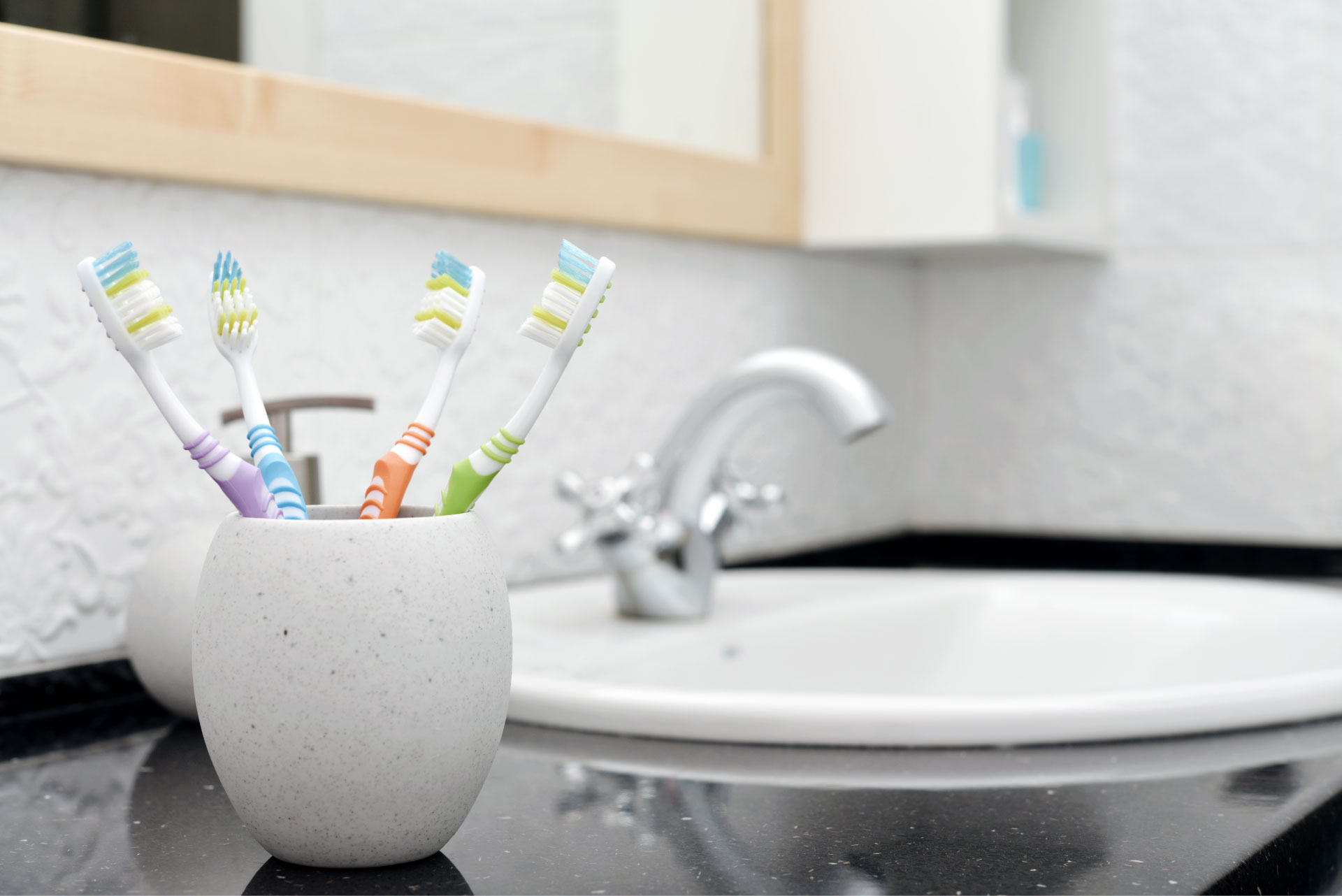
03 May Are You Storing Your Children’s Toothbrushes Properly?
Most of us do not spend much time thinking about how our toothbrushes are stored. Yet recent studies have found that toothbrushes can be a haven of microorganisms that can cause oral infections.
Our mouth harbor a host of microorganisms. When you are brushing your teeth, these bacteria can be transferred to your toothbrush. Microorganisms present in the place where you store your brush can also be transferred to your toothbrush. This is the reason why, how and where you store your toothbrushes is crucial.
Below are some tips on how to properly store your family’s toothbrushes:
Consider where to place. If you place your toothbrushes on the counter, make sure they are stored away from the sink and the toilet. Just imagine, every time you’re flushing the toilet, germs can drift and float through the air. You don’t want those germs to be landing on your toothbrush, right? Also, be sure to store your toothbrushes away from the sink to avoid splashing dirty water and soap to your toothbrush.
Do not share toothbrushes. Each member of the family must have their own toothbrush. Sharing must be discouraged. When you share toothbrush, you introduce microorganisms and bacteria into mouths. Remember that microorganisms from your mouth can be transferred to your toothbrush. Hence, never share and make sure that wherever you store them, there is enough space so the toothbrushes won’t touch.
Air it out. Placing your toothbrush in a closed container promotes bacterial and microbial growth. Also, bacteria and germs love dark, damp places. Putting a cover on your brush after using means it will not dry out fast. Putting your toothbrush on a toothbrush holder is ideal as there will be enough airflow for the toothbrush to dry out. Be sure to air it out in an upright position.
Change your toothbrush every 3 to 4 months. Your toothbrush must be changed every three to four months. The bristles become worn and frayed and so, effectiveness of cleaning may decrease. Check your kid’s brushes for this type of wear and replace them if necessary. Another benefit of replacing toothbrush is that it reduces the number of bacteria to which your family is exposed.
Clean toothbrush before and after use. Be sure to clean it regularly to prevent accumulation of dust, bacteria and other elements that could contaminate it. Rinsing the toothbrush using an antibacterial mouthwash before use may prevent or reduce how quickly bacteria accumulate on toothbrushes. You may also soak toothbrush in an antibacterial mouthwash after use to reduce the number of bacteria that grow on toothbrushes.






No Comments